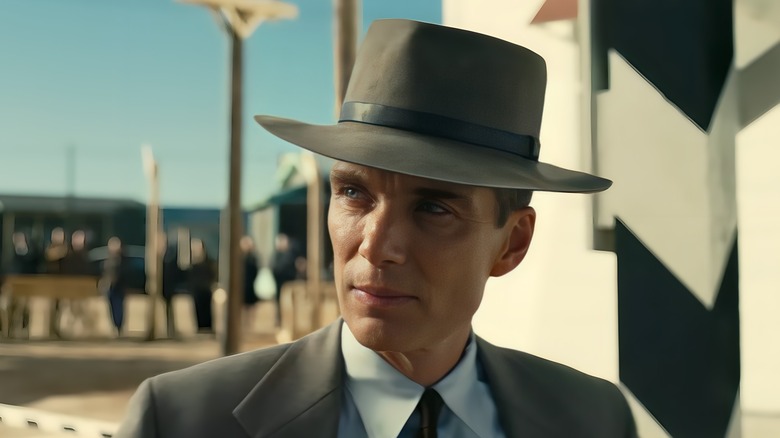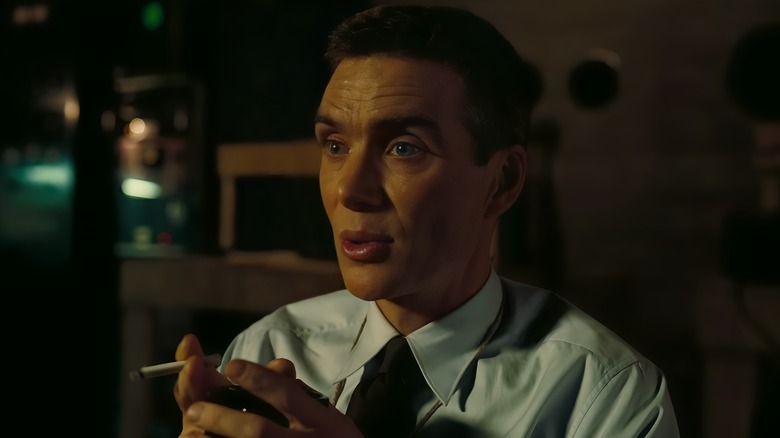Oppenheimer: Why That Poisoned Apple Is Key To Understanding The Real-Life Physicist
Christopher Nolan's "Oppenheimer" dramatizes the near entirety of its title character's life, right down to a disturbing real-life incident in which a college-aged J. Robert Oppenheimer attempted to poison his physics professor at Cambridge University. As the film depicts, Oppenheimer (Cillian Murphy) was so unhappy and ill-equipped to be working in the experimentalist environment of the school that he acted on a dark impulse to inject his professor's apple with poison (historians are divided on whether the agent used was deadly cyanide or a harmless cocktail only meant to make the professor ill).
The scene, placed early in the film, serves as a perfect metaphor for what Oppenheimer's relationship with the atomic bomb would become decades later. In both instances, he was compelled to act for reasons he'd struggle to explain afterward, representing the ironic seeming mental separation between his actions and their inevitable consequences.
Throughout "Oppenheimer," the titular scientist is hypnotized by images of ripples, fixated on how the rings travel and crash into one another as they multiply. Yet, despite this dread-inducing fascination, it's his inability to act on consequences rather than immediate desire that creates conflict in his life.
Oppenheimer's distance from consequence destroyed his life
Perhaps part of the reason why J. Robert Oppenheimer felt so separated from the consequences of his actions is that he rarely faced them as a young man. In contrast to Lewis Strauss, whose parents were so impoverished by the recession of 1913 that they couldn't send him to college, Oppenheimer's parents were so wealthy and influential that they were able to shield their son from reprisals after the failed poisoning plot was uncovered by the school. He wasn't expelled, much less criminally charged. This scene also informs Strauss' later animosity toward Oppenheimer, as the latter had openly mocked the results of the amateur physics education hard-won by self-study rather than through various expensive universities around the world.
In the film, Oppenheimer gets the rare chance to take back one of his unfortunate actions when he swipes the apple from an unsuspecting Niels Bohr (Kenneth Branagh). He tries impossibly to do this after the first two atomic bombs are used on Hiroshima and Nagasaki, urging Strauss to support an agenda of nuclear disarmament. This disconnect between present and future leads not only to his own undoing, but to the destruction of countless lives in the potential future he made possible.

